Army veteran Chris Loverro is one of thousands of Americans who have traveled to Ukraine to assist in that country’s effort to defend against the Russian invasion.
But Loverro isn’t taking up a Kalashnikov rifle. He’s manning a truck and delivering humanitarian aid to some of Ukraine’s hardest hit towns, including Bucha, the site of alleged Russian war crimes that came to global attention earlier this month.
From his Los Angeles home, Loverro had been watching the Russian invasion unfold on TV when he decided he had to do something.
“Like so many other veterans who served in Iraq and Afghanistan — and military vets in general — we feel compelled to do something,” Loverro told Military Times in a Signal call.
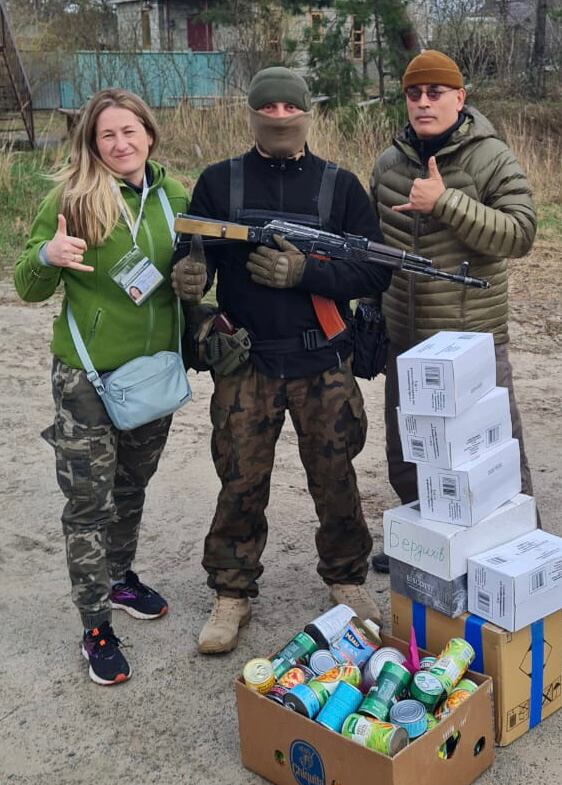
His journey to Ukraine started with research to see who he could volunteer for.
“Another veteran I served with in Mosul with the 2nd Infantry Division, Juan Rodriguez — I saw that he was working at the border providing safe passage to refugees wanting to relocate and so I contacted him,” Loverro said. “I linked up with him, bought a plane ticket and came out.”
Loverro carries with him a strong sense of service. That same mindset compelled him decades ago to become a police officer and also pushed him to volunteer to fight after the Sept. 11, 2001 terrorist attacks.
“You know, for payback,” he explained of his reasoning years ago.
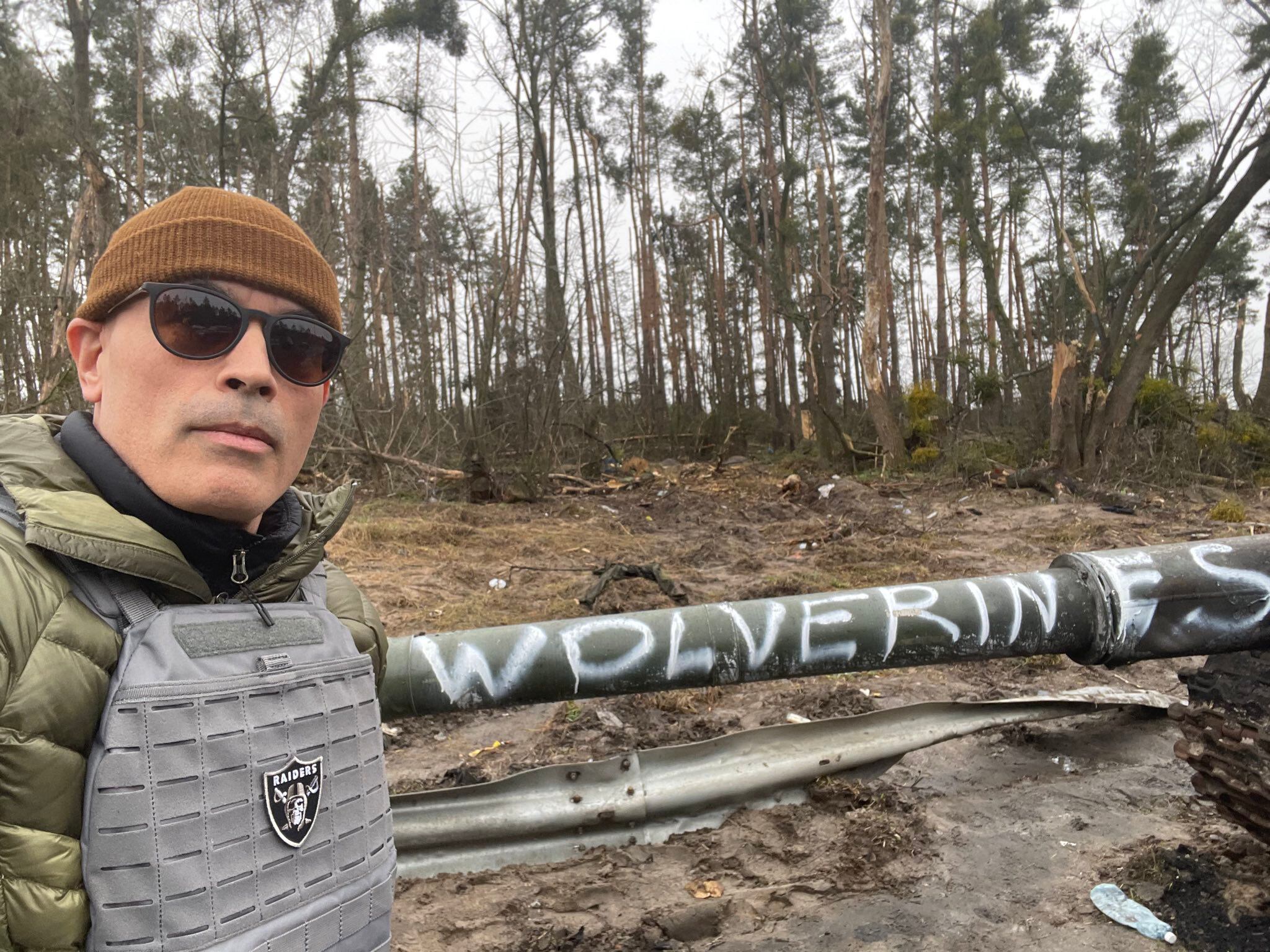
“At the time, I was a Berkeley police officer and my reserve unit got mobilized and attached to the 2nd Infantry Division out of Fort Lewis, Washington,” Loverro said. “We were with the first Stryker brigade that was ever stood up and we actually got sent to Iraq instead.”
Loverro’s Post-9/11 service was his second tour in the Army. He first served as a military policeman between 1985 and 1988, according to official records shared with Army Times. After that, he was in the California National Guard for about six months in 1991 and then the Army Reserve for four years until 2005 as a civil affairs specialist.
After being activated with the Army Reserve and spending a year in Iraq from 2003 to 2004, Loverro got out as a staff sergeant. He went back to his police career and became involved in theater a short time later.
“Now I run a theater company in Los Angeles called Warriors for Peace Theater,” Loverro said. “And our mission statement is to use the theater arts to help veterans reintegrate and find healing and catharsis through the arts.”
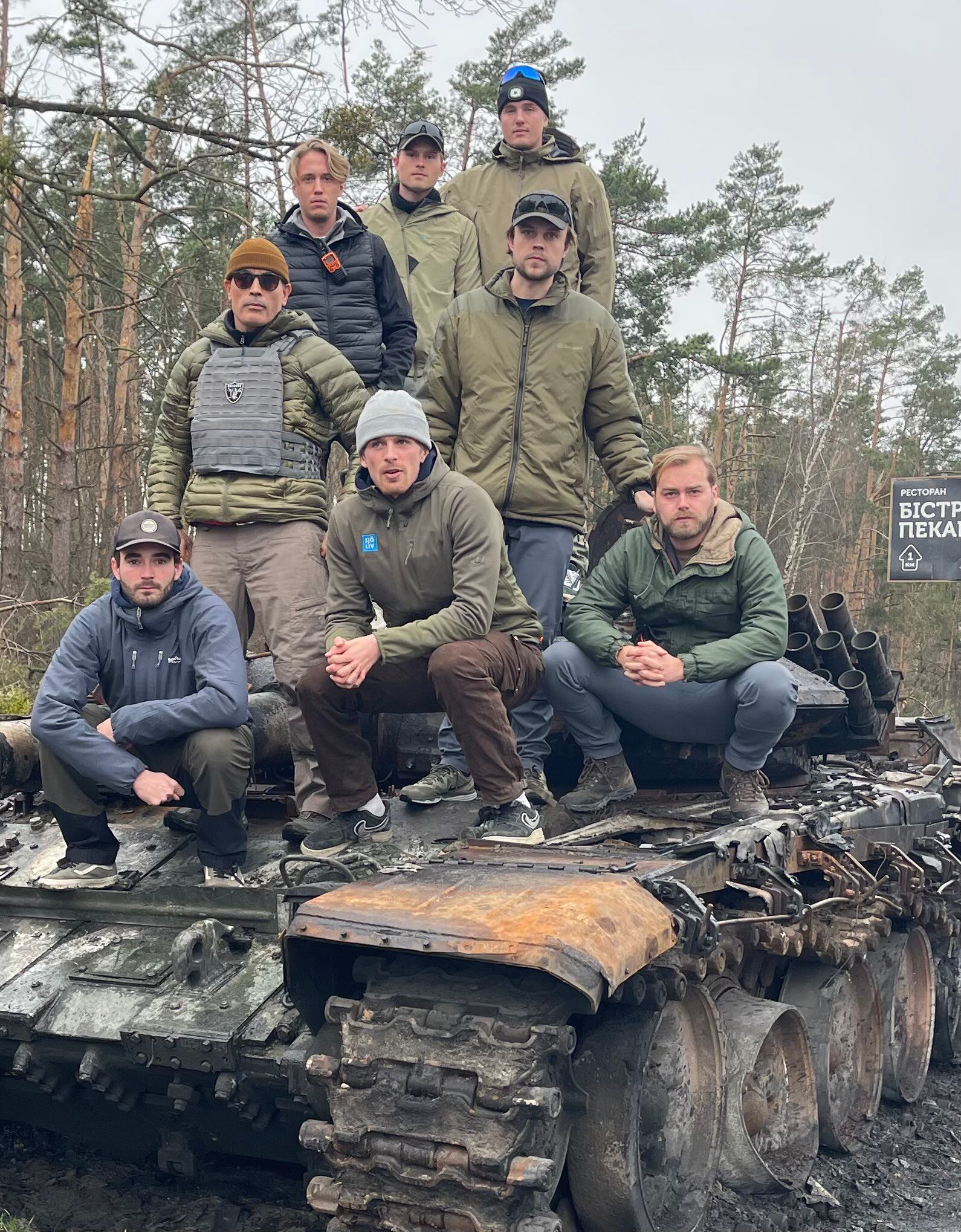
For Loverro, doing humanitarian work in Ukraine is all about service over self, something veterans are familiar with.
“And because of our background as veterans, we have certain skills that enable us to navigate war zones,” Loverro said.
Loverro coordinated with different organizations before ending up with Volunteer 100 Lviv, which sprang forth in 2014 during the War in the Donbas. The group is based in Lviv, one of the more populated cities in western Ukraine with some 721,500 residents.
For the past two months, Lviv remained relatively safe from the conflict until four missile strikes hit military installations and an auto repair shop in the northwestern part of the city on April 18. Seven people were reportedly killed and 11 were injured. Hundreds of thousands have sought refuge there since the beginning of the conflict on Feb. 24.
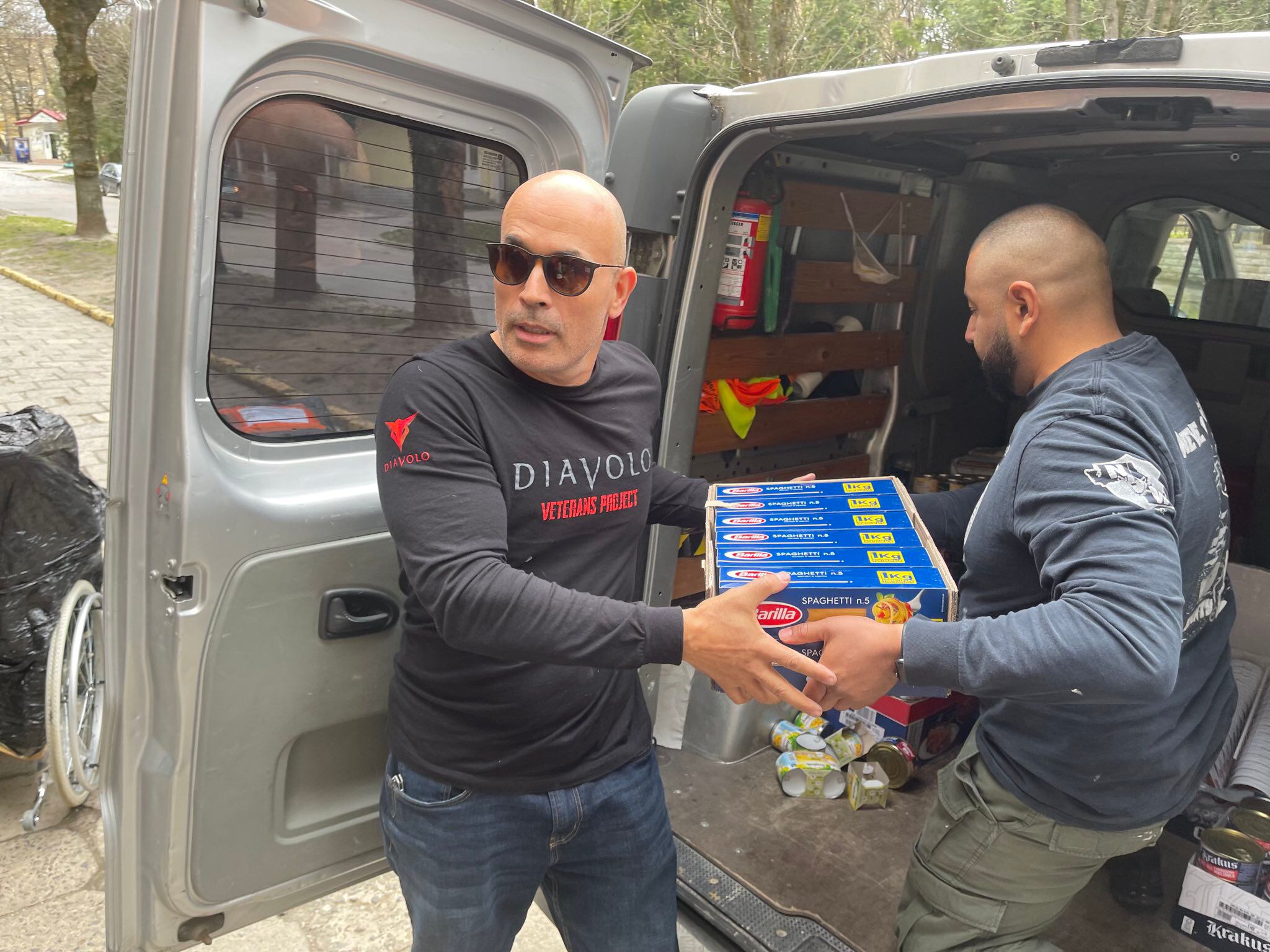
“I’m spending my own money and raising money back home to donate to this organization and a couple others to essentially buy food and medical supplies,” Loverro said.
Donated goods go to a warehouse, where the supplies are organized into categories.
“This corner over here is the children’s corner and it has diapers and baby formula, baby food, and this corner has medical supplies, and this corner has winter clothing, and this corner over here has supplies going to the military,” Loverro said of the process.
“Then what we do is organize convoys to go deliver it. We deliver to some of the hardest hit areas, where the need is most desperate,” he added.
Loverro has been on about a dozen convoys during his month-long stay in Ukraine.
Each day before a convoy, the team conducts planning and logistics. They place phone calls, pick up supplies and organize them for distribution.
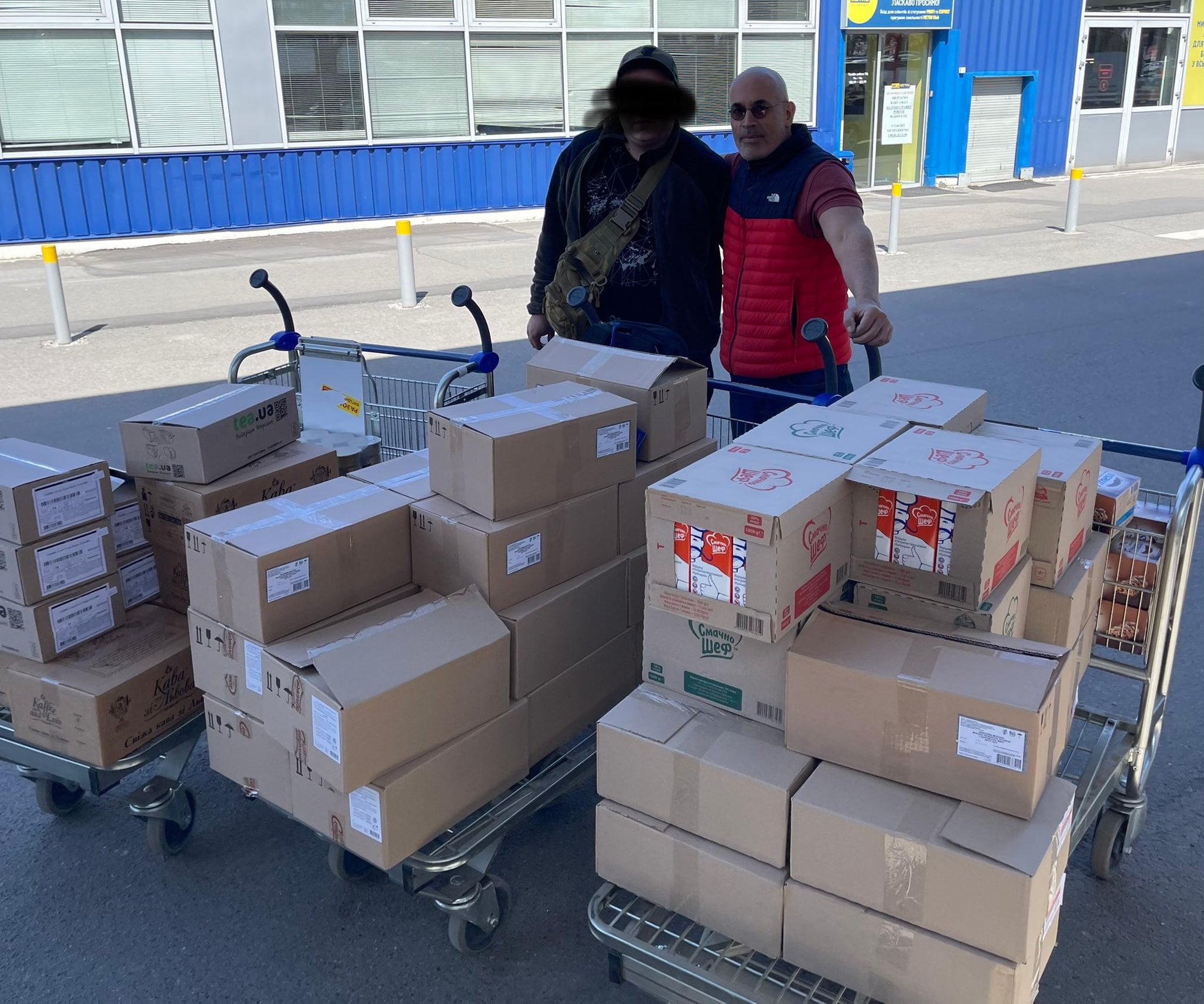
“Most of that is done on the off days,” Loverro said. “But everything is fluid. We have to deal with multiple vehicles at multiple locations, sometimes crossing the border, constantly getting threat assessments, and tracking the areas that are hardest hit and the most in need of supplies.”
Loverro said he’s formed a tight bond with the group he’s volunteered with over the course of a month.
“The organization ... has taken me in as family,” Loverro said. “I worked with some volunteers from Sweden and they invited me to go visit them at Stockholm.”
Having also served in Iraq and Afghanistan, Loverro said, the Swedes “are here because, like so many U.S. veterans, they want to help.”
One of the regular convoy destinations includes the town of Bucha, located some 326 miles east of Lviv, near the northwestern outskirts of Kyiv city.
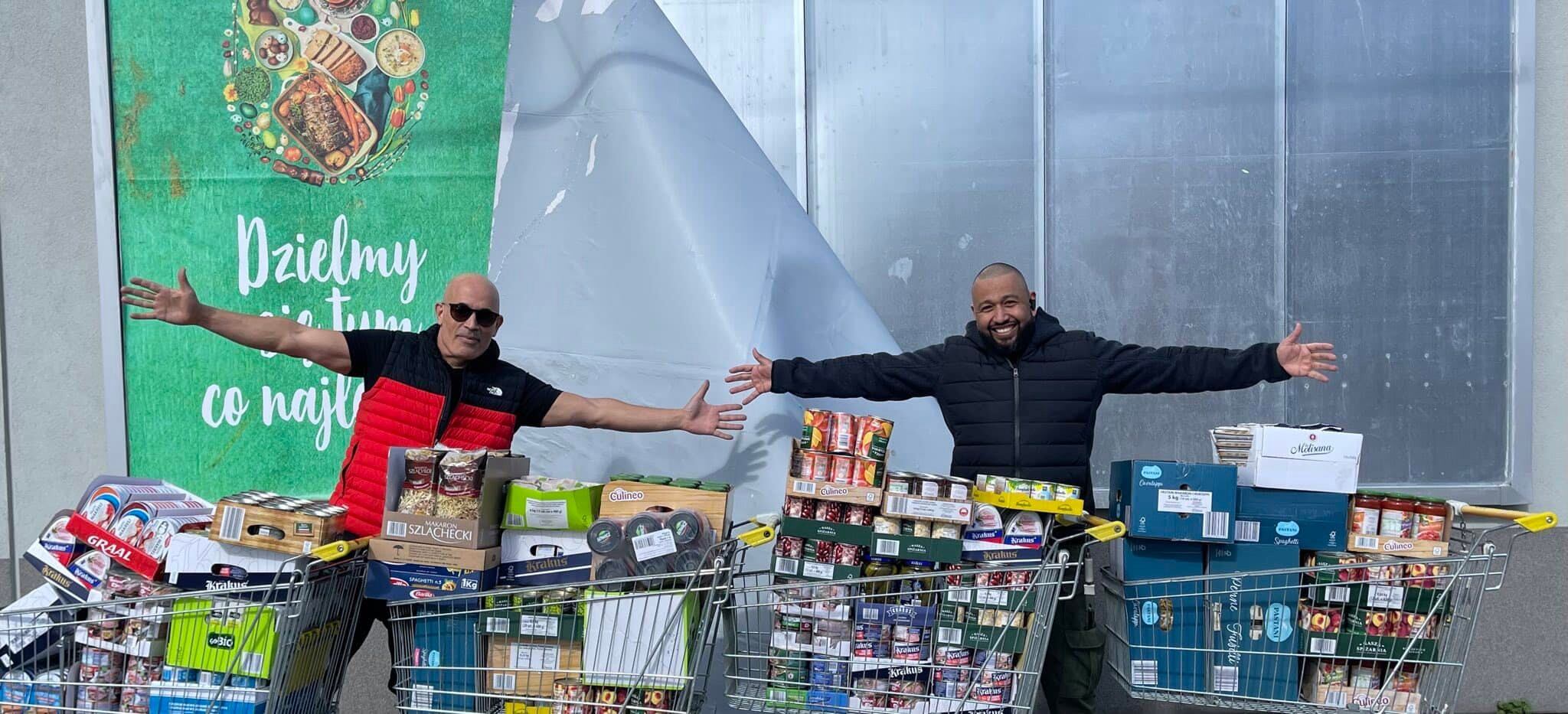
With a modest population of almost 37,000, Bucha is one of the hardest hit by Russian aggression, according to some estimations.
When Russian forces pulled back from Bucha and Ukrainian troops moved in, graphic photographs and videos surfaced of alleged war crimes, including bodies that appeared to be those of handcuffed civilians shot at close range.
Ukrainian officials have asked the International Criminal Court to investigate what happened in Bucha, though the Russian government has denied responsibility. The alleged crimes, in addition to the costs of the war itself, have sparked outrage in the European Union and NATO.
According to the UN Human Rights Office, some 5,718 civilian casualties have been recorded in Ukraine, with 2,665 killed and 3,053 injured. Among those casualties are children.
“It’s not just a war between Ukraine and Russia,” Loverro said. “I think it’s something that the whole world needs to stand up to and most of the world is.”
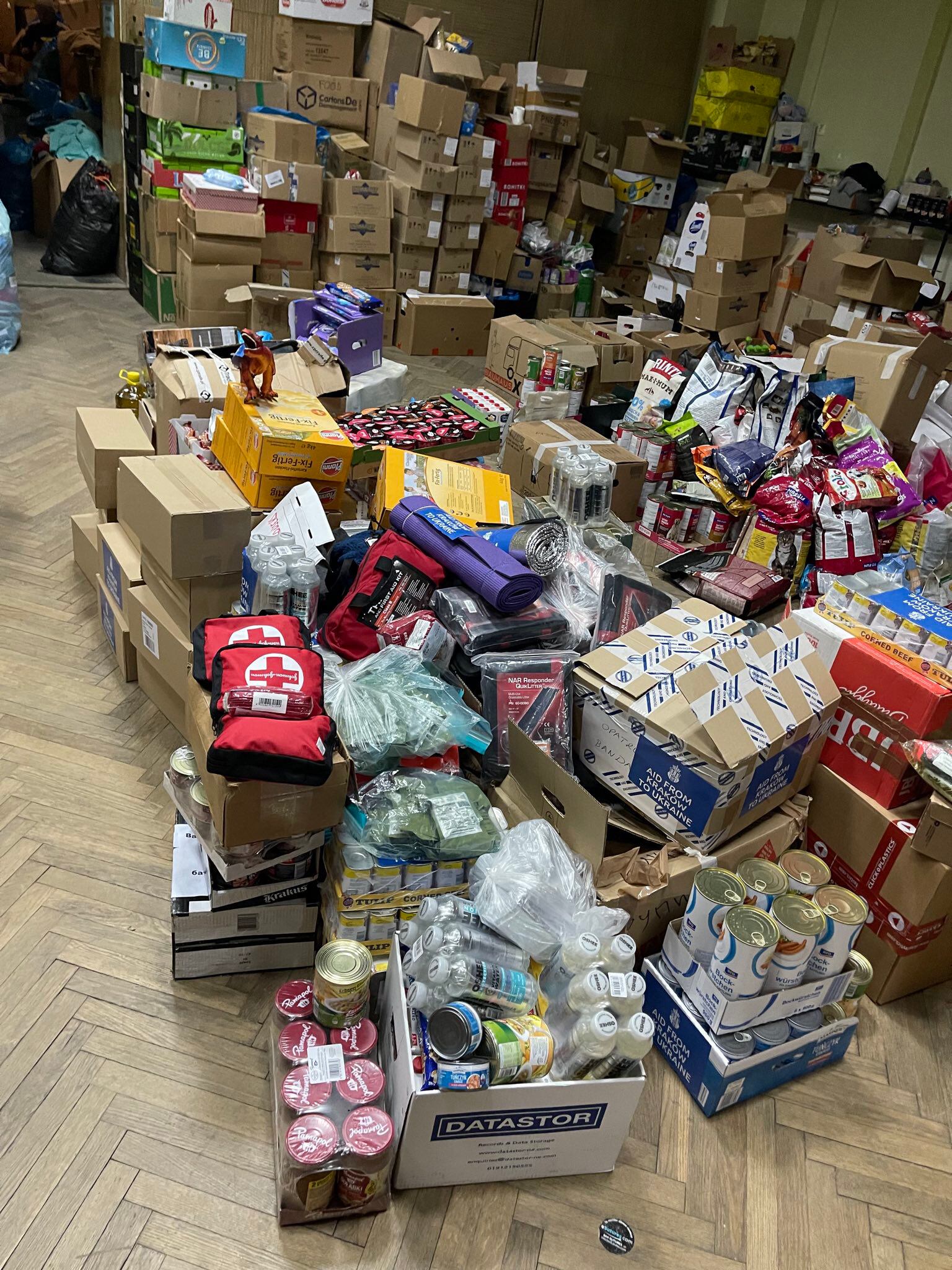
Jared is the manager of print design for Sightline Media Group's five magazines under the Military Times and Defense News banners.





